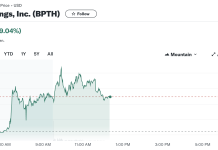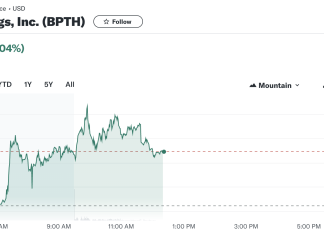Ampio Pharmaceuticals Inc. (NYSEAMERICAN: AMPE) has announced positive findings from the modified Intent to Treat population in its AP-013 study. AP-013 trial is the third phase clinical study of Ampion, the company’s flagship candidate, in individuals with severe osteoarthritis of the knee (OAK).
Ampion announces AP-013 study results
The AP-013 experiment was meant to validate the efficacy found in the crucial initial study, AP-003-A, and to identify therapeutic variations comparing Ampion and saline controls. The study needed a higher percentage of participants to assess functional gains than to assess pain outcomes alone. The AP-013 study began in June 2019 and was running when the COVID-19 pandemic struck, leaving a huge quantity of data lost as a result of the pandemic.
Due to the huge number of missing data, the company began the examination of the AP-013 data by following FDA’s recommendation to do a sensitivity analysis.
The company’s COO and President Holli Cherevka said, “This sensitivity analysis found a statistically significant impact from COVID-19, and as specified in our study plan, we have proposed an mITT population to assess efficacy. In this mITT population (n = 618), which retained more than 85% power to evaluate improvements in pain, Ampion demonstrated a statistically significant reduction in pain (p=0.042) and trended favorably toward improvement in function versus saline control.”
In addition, the findings in the Per Protocol efficacy cohort (n = 580), entailing the original AP-013 data analysis strategy, support the observations with a statistically significant decrease in pain (p = 0.020) and improvement in function (p = 0.027) compared to saline control.
AP-013 data confirm AP-003-A study results
CEO Mike Martino said, “We believe that the AP-013 data confirms the results from AP-003-A and supports the safety and efficacy of Ampion for the treatment of pain from severe OAK. Earlier this year we submitted a Type C meeting request to FDA. FDA acknowledged our request and confirmed they will provide written responses to our questions as the next step. To support our position and inform FDA’s response, we recently submitted a detailed briefing package.”















